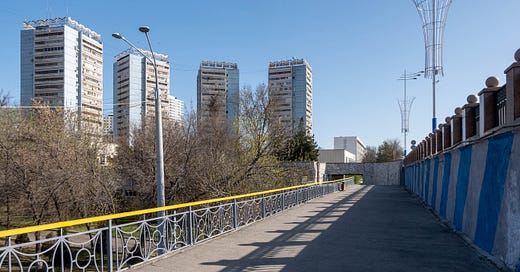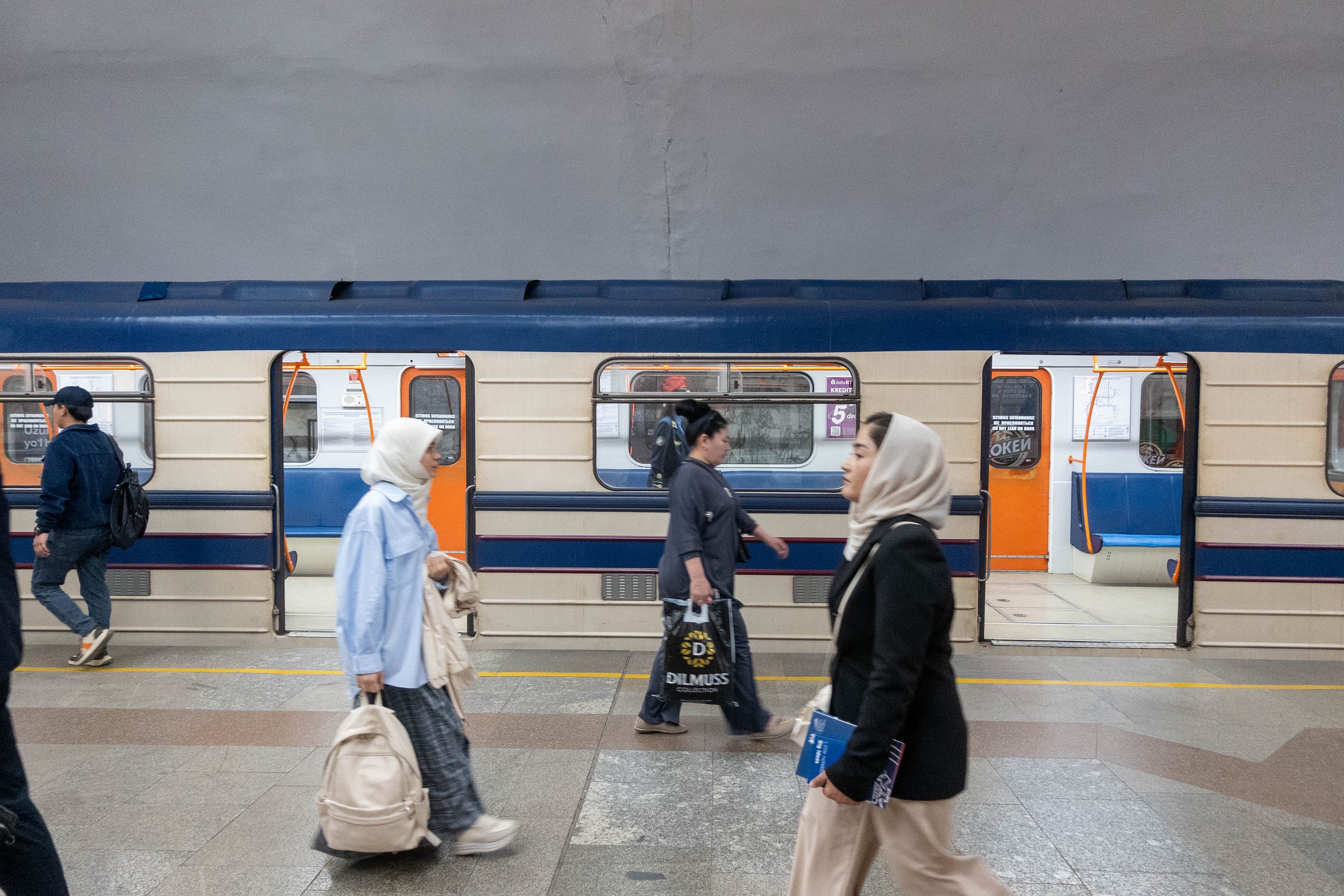I try not to judge a city before walking it. Despite that, I was still pretty sure Tashkent would be only a slight variation of Bishkek, since Uzbekistan and Kyrgyzstan share so much history, culture, and geography. Spending nights on Google Maps, searching the limited street views available for Tashkent, added more weight to my conviction, and so I packed and prepared for a cold, dirty, smog-filled, crowded experience and instead arrived to one of the cleanest, most chill cities I've ever walked.
Uzbekistan is famously authoritarian and corrupt, which usually comes with a lot of affiliated travel hassle, but within twenty minutes of my direct flight from JFK landing, I was through passport control, had changed money at a fantastic rate, found a bus straight to my neighborhood, and was As-salamu alaykum-ing the smiling old men outside my apartment in a five-floor Soviet-era housing complex.
I'd arrived in the middle of a heat wave, with temperatures in the low eighties, thirty degrees above normal, the skies perfectly clear, and in the middle of Ramadan. In a country that's 95% Muslim, yet even adjusted for that, Tashkent felt markedly different from Bishkek, and from almost every other poor city I've been in.
And Uzbekistan is poor, one of the poorest nations in the world, with a GDP/capita ($2,800) just above Kyrgyzstan ($2,000), but well below Mongolia ($5,500), Bulgaria ($13,000), and Indonesia ($5,000), countries that share some history, religion, and/or geography.
Yet it felt very different than any of those places. Where was the poverty? Where was the awful traffic? Where were the crowds? Where was the smog? Where were the piles of garbage? Where was the disorder? Tashkent has little to none of that. It is a pleasant, clean, relaxed city, which makes it feel much wealthier than it is.
It's also exceedingly polite, with more of the innocent optimism of Mongolia, or Indonesia, than the gruff ex-Soviet manner of Bulgaria, Poland, Ukraine, Romania, and Kyrgyzstan.
Ramadan and the spring weather explain part of the differences. However, even at night after sunset when everyone rushed out to eat and the city reached peak activity, Tashkent remained remarkably easygoing, composed, and even serene.
Even when everyone disgorges at the same time (sunset) into the malls, parks, and subways, the city stays orderly, calm, clean. Despite having close to three-million residents, it still feels empty, because Tashkent absorbs everyone, since it is giant. Tashkent is a plus-sized city, but it wears it well, since it is like a normal city expanded in every way by thirty percent. The streets are wider, the blocks longer, the buildings more monumental, the monuments more colossal.
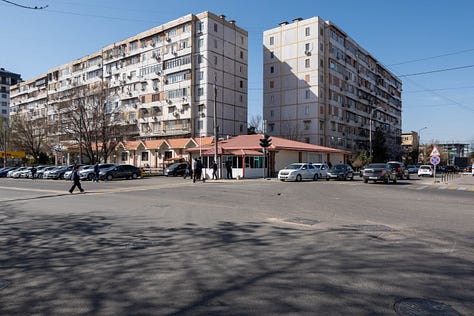

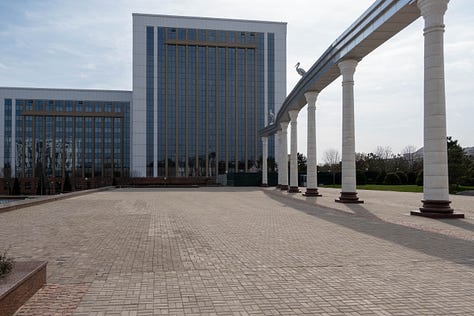
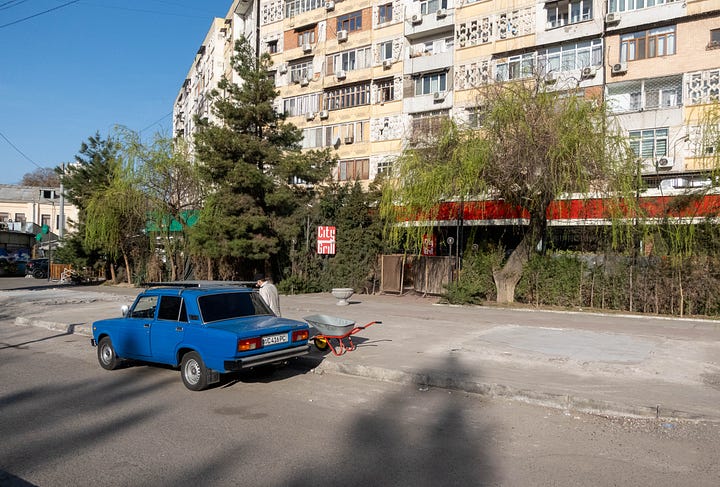
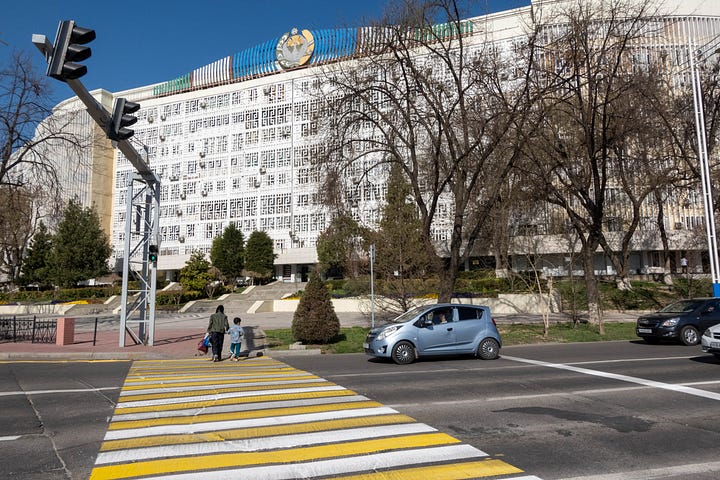
Tashkent was built on a massive scale by the Soviets, partly for nefarious reasons of control, but also because they really did believe a city of grand design makes it more livable, and Tashkent is evidence they were not entirely wrong.
Unlike other post-Soviet cities though, the last thirty-five years of modernization has largely stuck to that "giant, dramatic, and highly-centrally-planned-is-good" ethos because their single leader for the twenty-five years following independence, Islam Karimov, was thoroughly Soviet, including his belief that Democracy is bad and enormous equals good.
I've written constantly about my own view that organic bottom-up design and growth makes for more livable cities, but after the last year in Asia, I'm less certain of that, and Tashkent is another dent in my certainty. While I've only been here five days, I like Tashkent, certainly far more than I expected.
Yet, even now, I'm starting to grow frustrated with its vast size, its sparseness, which tilts it into the inhuman territory. It certainly makes walking here a silly exercise in inefficiency, which I found out the hard way; for two days I stuck with my plan to walk across the town, despite the heat, despite the sun, trudging across vast shade-less plazas, down absurdly wide boulevards, finding little street life.
On my third night I woke up at 2 a.m. with chills, ill from the heat. My skin was cooked, my body dehydrated, and my brain still on New York time. It was not a fun twelve hours, and brought back memories of Phoenix.
It was that morning, while desperately searching for my packets of electrolytes, which I'd forgotten to pack, that I remembered Tashkent is on the edge of a desert, and maybe I shouldn't have walked those thirty miles without drinking more water. Like in Phoenix, that was hard to do, not because of a lack of bathrooms, but because the shops are so far apart, because everything is so far apart.
My love of Tashkent survived the night, barely, and after finding some overpriced hydrating drinks, I changed my tactics, and did what all the locals do, which wasn't to walk across town, because that's an absurd thing to do, but instead ride the metro everywhere because it goes almost everywhere, is beautiful, and is effectively free (ten cents).
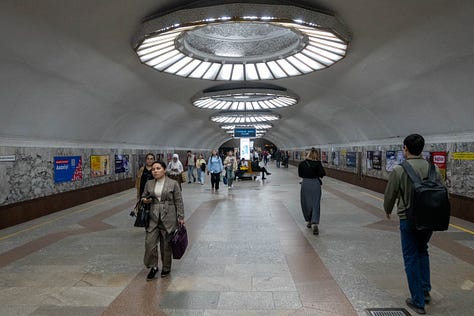
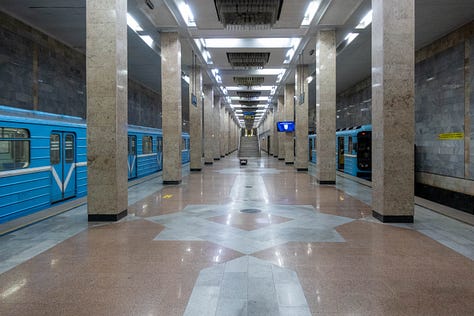
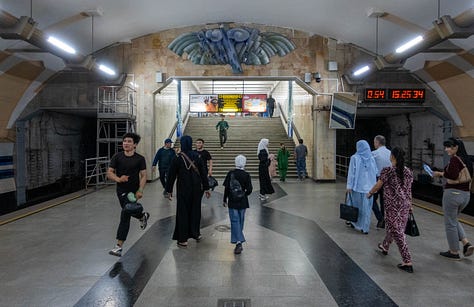
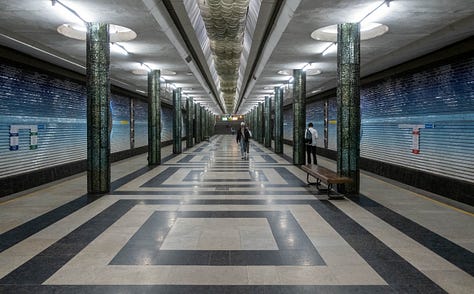
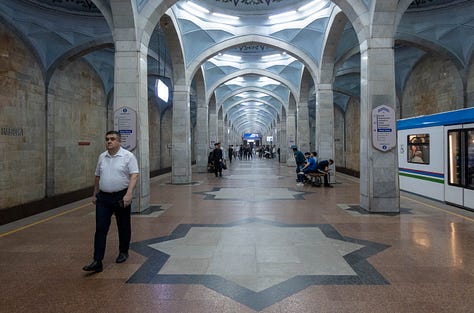
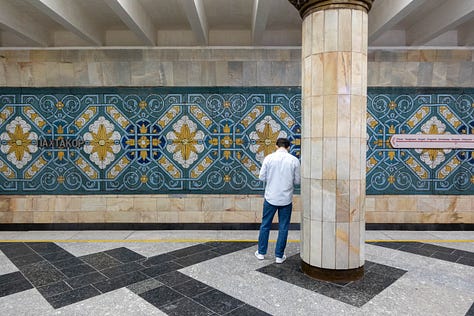
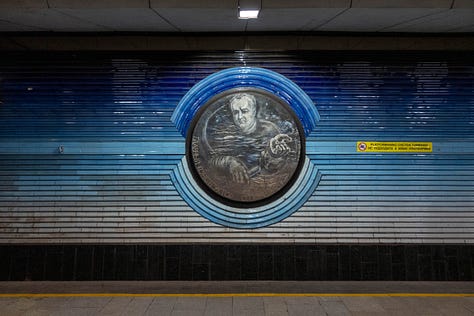
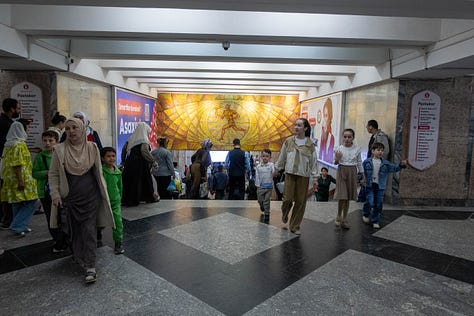
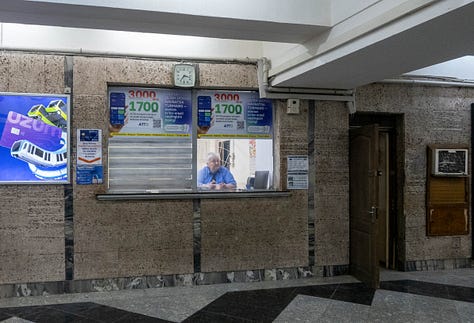
The beauty of the metro system is reason alone to come to Tashkent, from the station celebrating the cosmonauts, to the tile work, to workers in their Soviet-era outfits, but it is the cleanliness, safety, and functionality that impresses, because it isn't an anomaly, and is representative of Uzbekistan.

